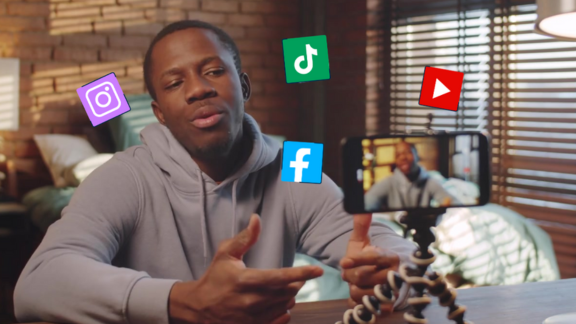There is a high chance you are using a licence, or multiple licences, right now. Your phone is full of them, from the case to the apps. Then there are t-shirts, e-bikes or your favourite reusable coffee mug. Everyone who makes a product or creates something or has a trademark – and owns it – can give permission to someone else to use it. That person then has a licence, and it can be useful – when you would really like to expand, for instance, but want to limit your financial risks. Could it be something for you?
A licence then is really a type of permission. You give someone permission to use something you have made or thought of, something that you own – and continue to own. In the case of a trademark, you can only grant a licence if you have registered the trademark.

Frying Nemo
Suppose you have a successful fish restaurant called Frying Nemo in a town on the Dutch coast, and you would like to expand to other towns. Instead of opening new branches yourself, you can give a licence to another entrepreneur. They can then use the name Frying Nemo, and the concept it stands for, in exchange for a fee. However, you can only do that if you own that name, which means you have to have registered the brand name Frying Nemo.
Good idea
Licences can be an interesting option at any stage of business, whether you are a starting entrepreneur or a seasoned SME owner. You can enter into a licensing agreement if you would rather not set up a factory, shop or distribution network yourself for your product, for instance. You can also do it if you want to reach new customers for what you have created, or if you want to expand your brand to other countries perhaps. In a licensing agreement you set out how you agree to the use of your product or creation or name. You also agree on the fee the licensee has to pay and the quality they have to deliver. You also determine the duration of the licence.
Financial pros and cons
Licences can result in additional revenue, without you having to produce or sell everything yourself. However, it is important to realise that you are also more dependent on others though. You no longer control 100% the quality of what comes on to the market under your name. If a licensee enjoys less success than expected, or ceases cooperating with you, it can also have financial consequences for your business.
Do you want to grant a licence? Then start by registering your trademark
In Belgium, the Netherlands and Luxembourg you register your trademark with BOIP, for the 3 Benelux countries together. If you haven’t yet registered your trademark or you would like to know more about trademark registration, take a look at our convenient 4-steps for trademark registration



